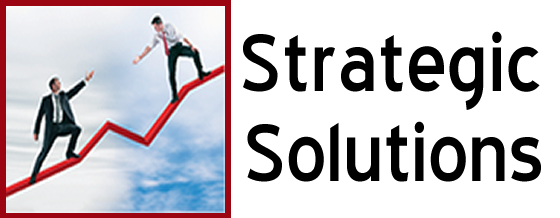Habits: Getting to Know Your Triggers
“Successful people are simply those with successful habits.”
– Brian Tracy
If we accept the belief that we are what we repeatedly do, then what we repeatedly do becomes a habit.
Some habits are healthy. They propel us forward and help us live more productive and satisfying lives.
On the other hand, some are destructive, and stand in the way of our achieving our goals and living our lives to their full potential.
Whether good or bad, habits tend to sneak up on us. These unconscious responses become part of who we are. We forget that these routinized patterns of behavior were once learned. In that respect, habits comprise about 40% of our daily lives but because they’ve become so ingrained in how we think and what we do, we forget we’ve just gotten into the ‘habit’ of doing things a certain way. Oftentimes, it’s not until something hits the fan, for good or for bad, that we stop to consider that maybe our habits played a part in the outcome.
We absolutely have the capacity to cultivate good habits and change the bad. Sometimes all it takes is a subtle shift in actions and attitude to turn negatives into positives, or visa versa.
Awareness comes first. Realize that we are called ‘creatures of habits’ for a reason. Like other animals, we humans like to hunker down into our comfort levels and stay there until we get that wake-up call or ‘aha’ moment, that tells us that something either works or doesn’t and needs to change.
When we set expectations and they don’t pan out, our typical response is to blame ourselves. Like when our New Years resolutions go awry, or when we promise our selves we’ll work out every day and forego the sweets, but we blew it within a week. What do we say? ‘It’s just me.’ We let the little voice in our heads tell us we just don’t have the willpower others seem to have to follow through.
While personality does play a role, the majority of our habits – both good and bad – are influenced by context. In other words, the world around us. Our environment sets the stage. By understanding that we are constantly evolving and nothing is ever carved in stone, we can use context to change our habits and create a positive playing field to achieve success.
Habits are merely a matter of stimulus and response. A triggering event. The trigger can be a product of time, where you are, what you’re feeling, who you’re with, or what just happened.
Let’s play this out.
- When I was young, I used to visit my grandmother regularly. Sometimes I’d ask, ‘Grandma, are you hungry’? Grandma would always say, ‘I don’t know. What time is it’? How many things do we do each day that are predicated by time of day?
- It’s time for a break. You get up from your desk and walk into the kitchen or break room (whatever the case may be), pour some coffee and go to the refrigerator or the vending machine and eat something. The problem is, you’re not hungry. You’re merely responding to where you are – your physical location.
- You’re feeling down, or up, or antsy, or happy? What do you do automatically as a result of your feelings? Have some sweets? Grab a cigarette? Pour a drink? Call someone? Get on Facebook?
- You’re working diligently at trying to put some money in that rainy day fund, but something always seems to come up. Do you wonder if it has anything to do with the shopaholics you’ve been hanging around with lately? In other words – are you hanging around with the wrong people?
- Here’s a no-brainer. When the phone rings, do you pick it up? Do you stop what you’re in the middle of when a new email comes in? When you get a message that so-and-so tagged you on FB, do you automatically click on the post? We’re trained to respond to stimuli. Sometimes an automatic response is absolutely needed – like that alarm clock in the morning or the dog who’s barking because he needs to go out. But being aware of how, what, when and most importantly why you respond as you do should be a conscious choice.
Next week, we’ll look at some tricks to help build on good habits and purge the bad. They’re simple – and they work. They even come with rewards.
